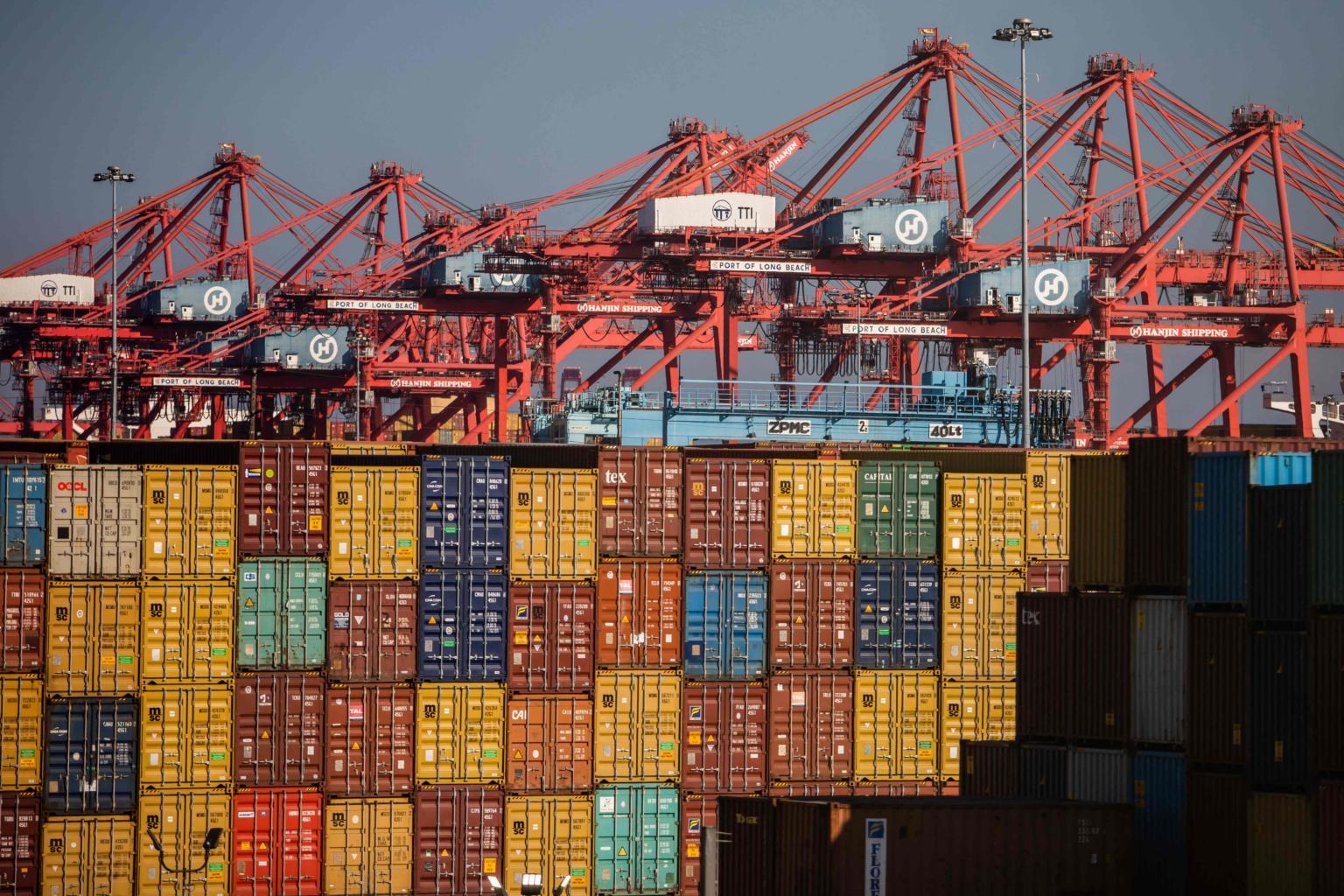Bloomberg New Economy Forum
Technology is key to resilient supply chains, experts say
Sign up now: Get ST's newsletters delivered to your inbox

Strong partnerships between suppliers and customers across the ecosystem are critical, said Micron CEO Sanjay Mehrotra.
PHOTO: AFP
Follow topic:
SINGAPORE - As supply chain snags continue into 2022, it is important to strike a balance between efficiency and resilience, and make use of technology to build trust among countries.
In that respect, governments have an important role to play in facilitating trade by setting good rules for the digital economy and allowing free flow of data across borders, said Mastercard vice-chairman and former United States trade representative Mike Froman on the third day of the Bloomberg New Economy Forum on Friday (Nov 19).
"We are seeing many countries move towards more protectionist measures when it comes to data, often driven by legitimate concerns," he said.
"But we can work through those concerns, for example, by protecting individual privacy but at the same time, permitting data to flow in a way that allows supply chains to be more transparent and efficient."
Also speaking at the panel discussion titled "Untangling Supply Chains" was Micron Technology president and chief executive Sanjay Mehrotra, who said that strong partnerships between suppliers and customers across the ecosystem are critical.
Supply chain transparency requires collaboration on technology and building intelligent systems that can spot and deal with bottlenecks proactively, he added.
"Trust, transparency, accountability and commitment - these are the key aspects that will be important to address the supply chain crunch we have today. And of course, appropriate investments."
Despite the fact that shipments of semiconductor components today exceed pre-pandemic levels, the shift towards working and learning from home, as well as growth in e-commerce during the pandemic, have caused demand for semiconductors to skyrocket, he said.
Hence, Micron invests heavily in its supply chain to ensure that it has redundancy in operations - from semiconductor manufacturing in Singapore, Japan and Taiwan, to assembly, testing and packaging in countries such as Singapore and Malaysia.
"Our globally diversified footprint has been very helpful in this regard," he said.
"Shortages across the semiconductor industry are continuing and have impacted shipments of personal computers. Similar shortages also exist in the automotive market. But I believe that going forward in 2022, we will see continued improvements."
Mr Froman observed that companies around the world began reviewing their supply chains long before the start of Covid-19.
"As costs started to rise in China, they were already looking at the price differential that they faced. Companies began to revisit whether it made sense to put all their production (in one basket) or to diversify," he said.
"Then we had the trade tensions under (former US president Donald) Trump, which further introduced uncertainty into that supply chain. Covid-19 accelerated this, just like it has accelerated other trends that were already under way."
Fashion e-commerce platform Zilingo CEO Ankiti Bose said the huge investments needed for supply chain resilience are a challenge for many textile companies.
The lack of digitalisation and transparency also means that environmental, social and governance (ESG) adoption in the textile industry is not progressing as quickly as it should be. Here, the use of technology such as smart contracts and blockchain would be useful, she added.
"It takes about 4,000 litres of water to make a pair of jeans. If you don't know whether the water was recycled, whether the waste from that plant was recycled, where the cotton comes from... you cannot take action either backwards or upstream."
The fashion industry is often criticised for being environmentally unsustainable and for being responsible for around 10 per cent of global carbon emissions every year.
Ms Bose noted that some international fashion brands have diversified their sourcing away from China towards other countries such as India, Indonesia and Vietnam.
"So there's definitely an acceleration in the growth of textile exports from these countries, which is enabled by technology and favourable regulations."
Mr Froman said that it is important not just for big companies but also small- and medium-sized enterprises to participate in global trade.
Unlike large companies who have full-time staff to manage supply chains and obstacles at the border, small companies cannot afford to do that, he added.
"And so looking for ways to digitise how invoices are processed and smart contracts, moving away from cash and cheque - where it's very difficult to reconcile invoices - to some kind of digital payment infrastructure... is all the more important when we see new obstacles being put into the global trading system, whether through decoupling or trade tensions or companies revisiting the nature of their supply chains."

